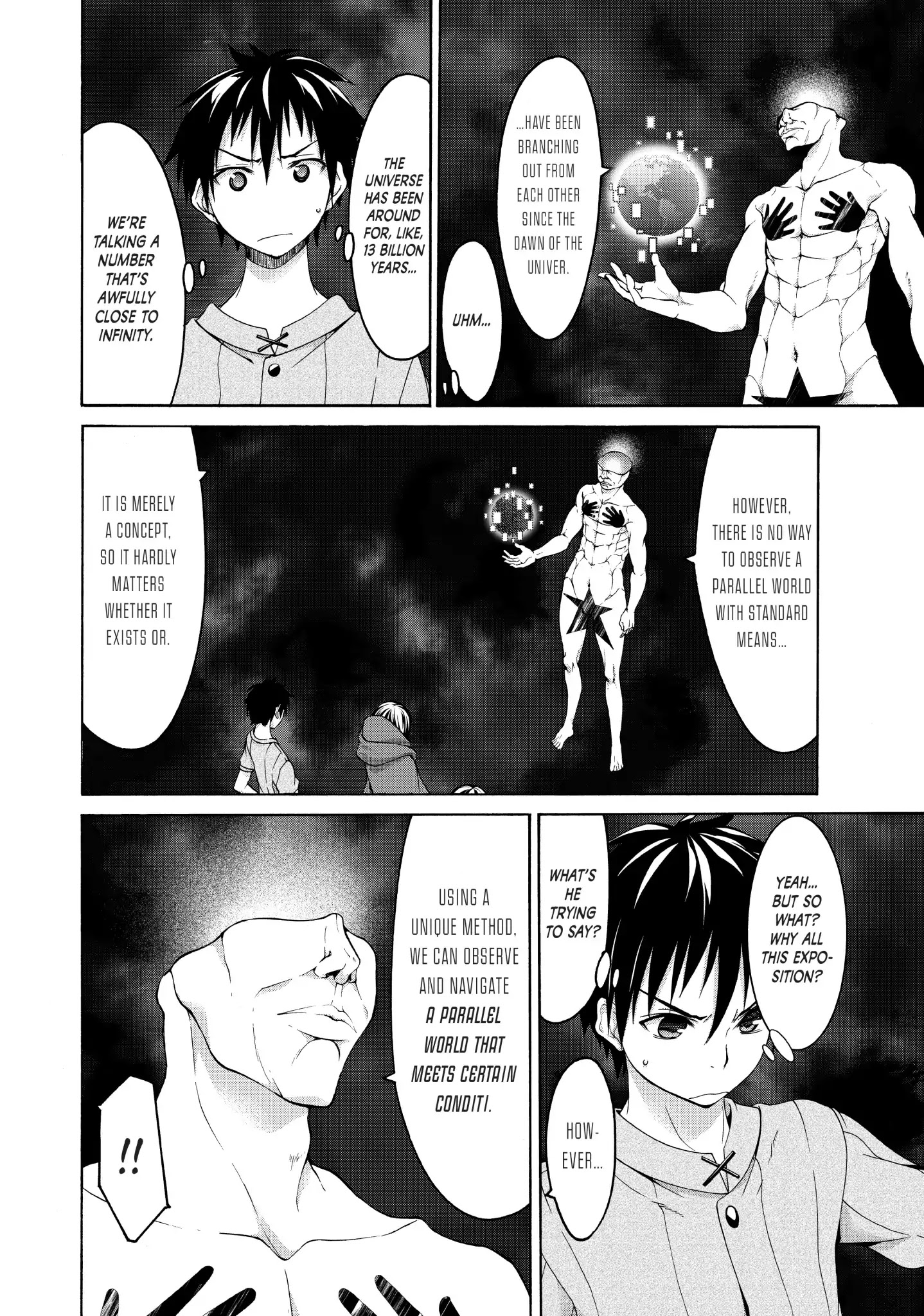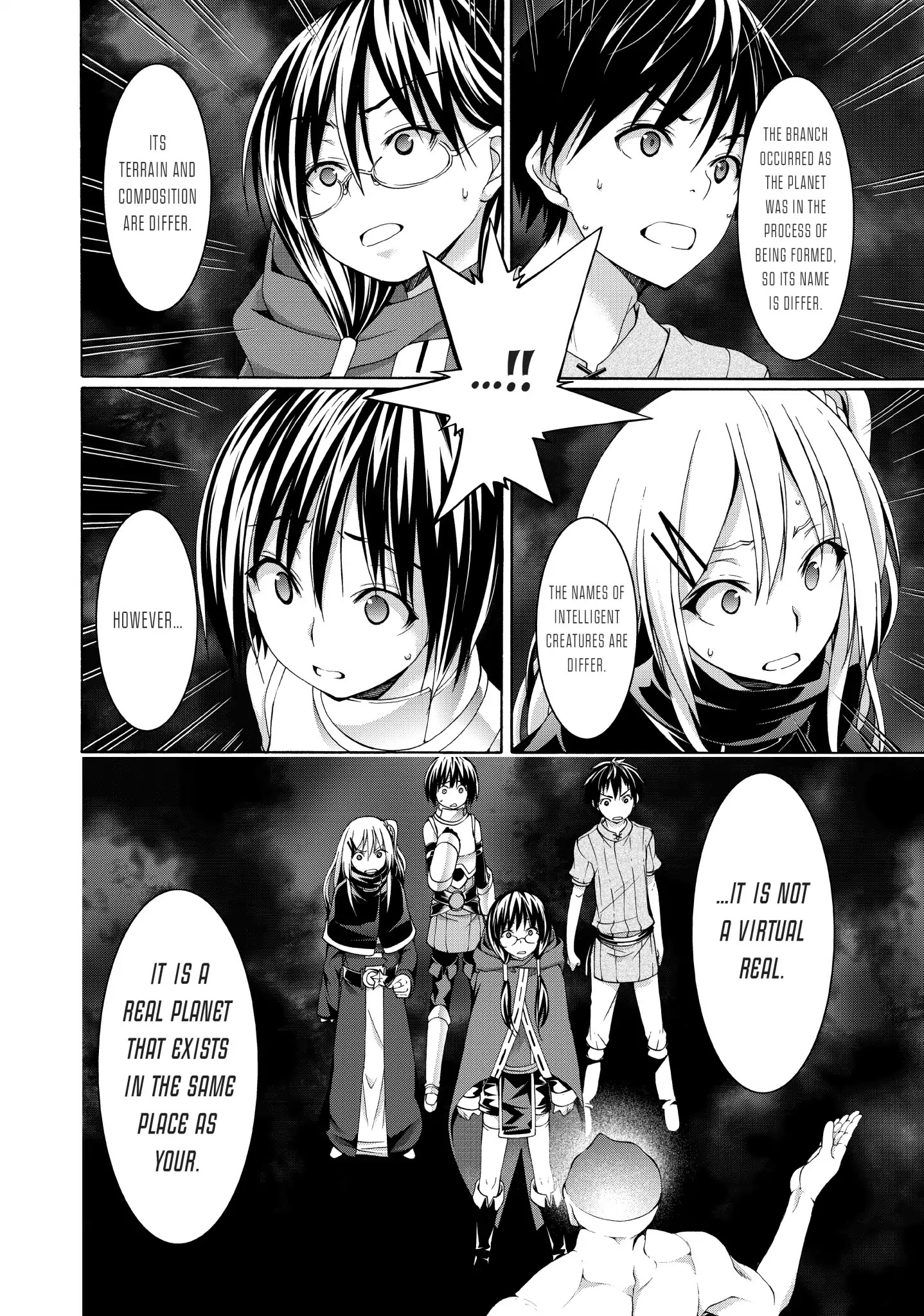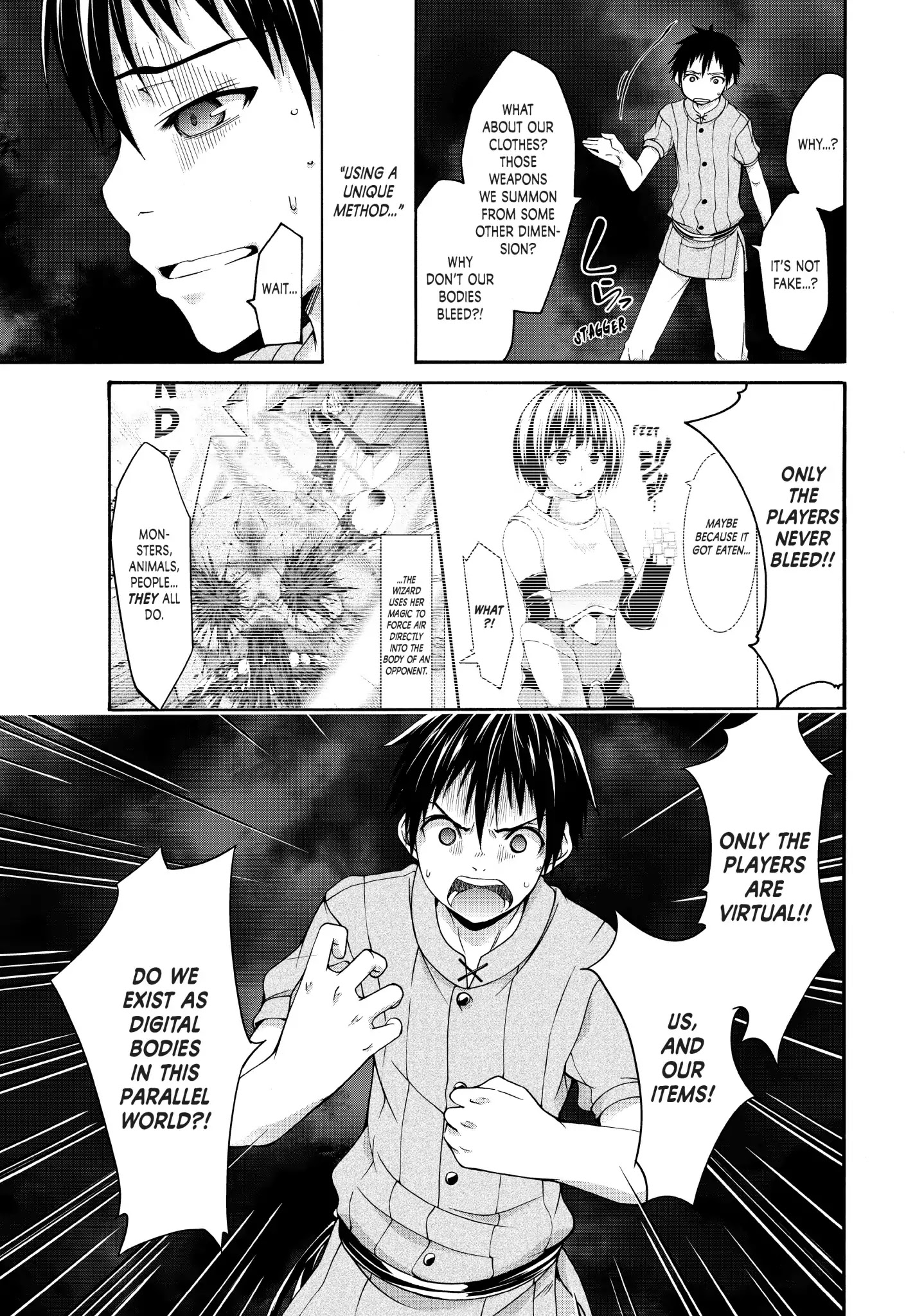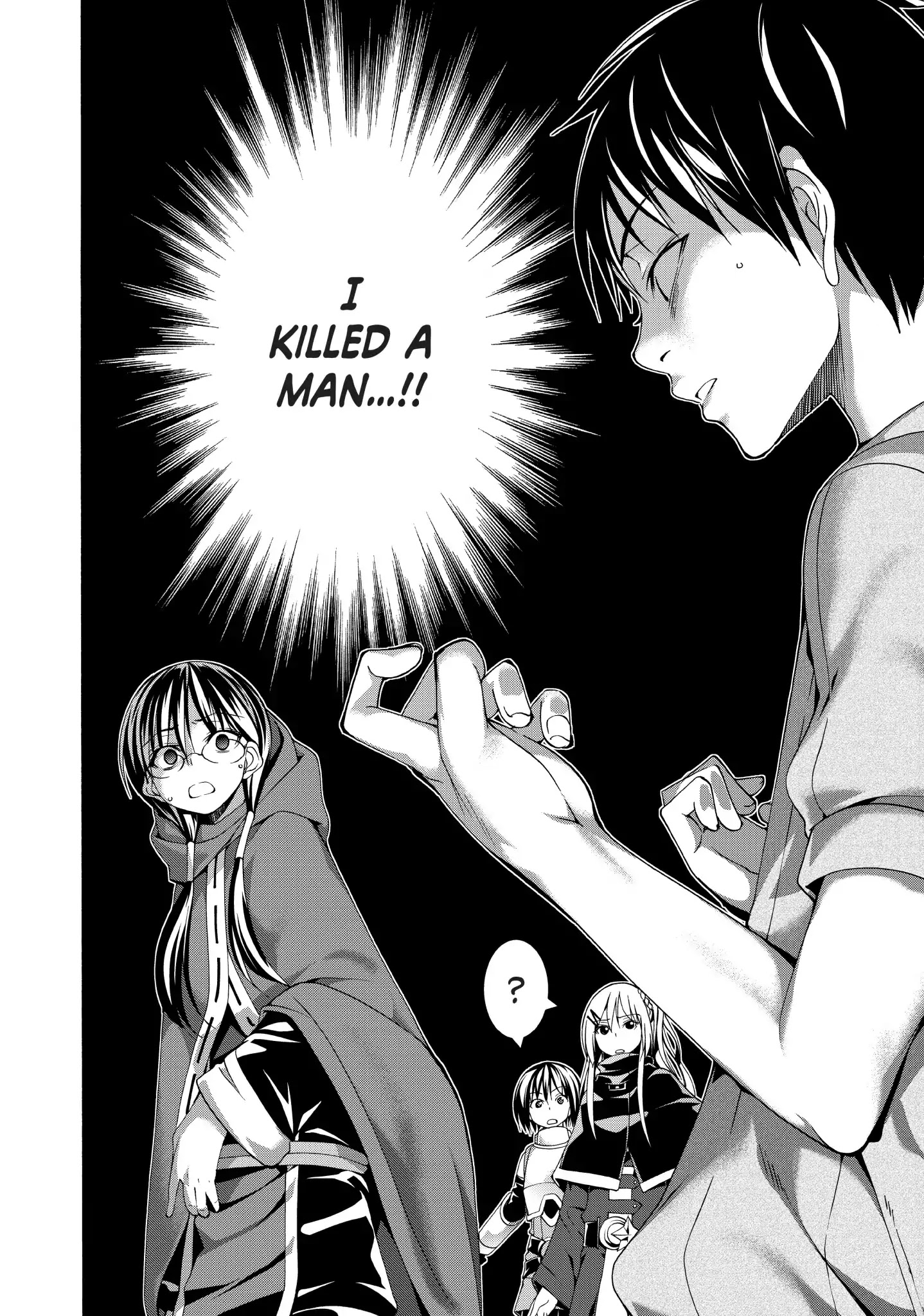Is This World Real?
31 May, 2022
Unlike in stories focused on, say, space travel, where whatever place the characters visit have a specific geographical (if distant) location, the concept of ‘parallel worlds’ is synonymous with isekai. And in those stories based around dreams or using video games (or books, or perhaps other works of media) as the means of summoning, the very reality of one’s new world is often called into question.
I was reading the 100-man no Inochi no Ue ni Ore wa Tatteiru manga and was struck by a scene reminiscent of episode 19 of Digimon Adventure. In both cases, the characters learn that they were in a parallel world linked distantly to their own, but their reactions, owing to the circumstances of which they were summoned (and, perhaps, the thickheadedness of Yagami Taichi in the earlier part of the series), are almost the inverse of one another.

_[505291FB].mkv_snapshot_07.13.880.jpg)

%20[87FA9E5C].avi_snapshot_15.16.091.jpg)

Taichi spends much of the remainder of the episode acting like he’s immortal, only to be shocked into inaction when Koushirou is able to explain things more fully. The normally brave protagonist is left helpless before an electrified fence and unable to rescue a good friend.
_[505291FB].mkv_snapshot_13.41.672.jpg)
_[505291FB].mkv_snapshot_19.44.770.jpg)
To their credit, the 100-man no Inochi cast had been playing the role of heroic protagonists up to this point, but the world of MMORPGs are not without violence. What he had done shocks Yotsuya Yuusuke’s conscience, even though the man he slew was a murderous slaver.

Yet the opportunity to act without restraints and morals is also part of the appeal of many video games - as many a more recent anime or manga where one becomes as a demon king can attest - and Ichijouji Ken, in Digimon Adventure 02, became a megalomaniac conqueror; for him, the revelation of what he had done was an awful moment, and he spends the rest of the series trying to atone. In a real sense, although Motomiya Daisuke is the main protagonist, 02 is Ken’s story.
%20[87FA9E5C].avi_snapshot_14.14_[2016.10.01_12.25.33].jpg)
%20[87FA9E5C].avi_snapshot_15.26.466.jpg)